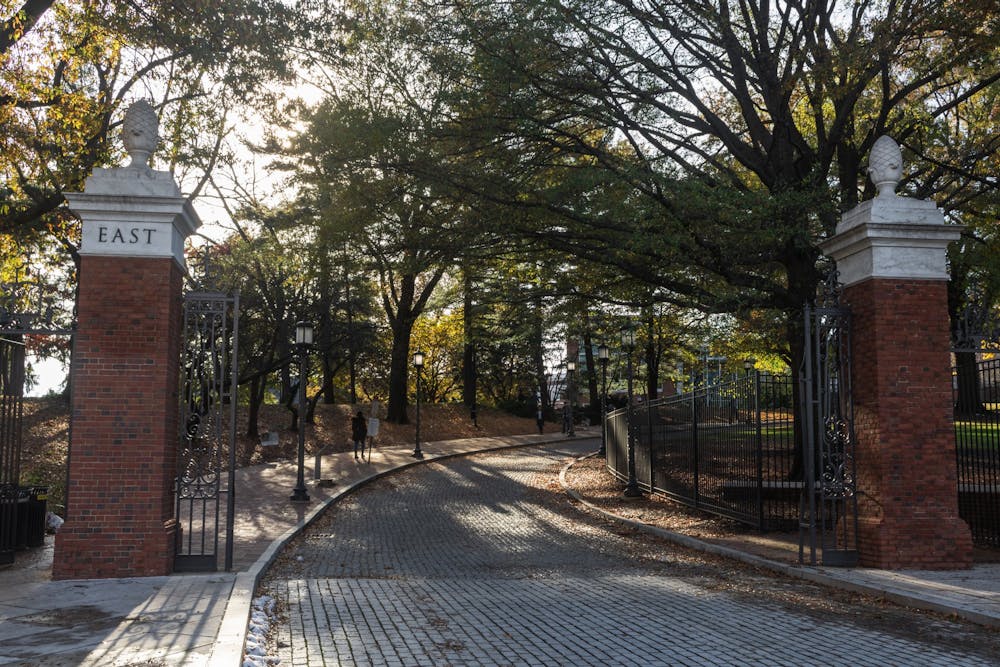Dean of Student Life Smita Ruzicka invited students to participate in a dialogue about public safety at Hopkins on Thursday, Feb. 13.
In an interview with The News-Letter, Dre Fraser, a graduate student in the Sociology department, argued that the meeting filled a gap in engagement that had previously been lacking.
“This is actually the first meeting that has been held at this University since the police force was created. They put out an interim study collecting all of this feedback, but since then nothing has happened, so this is a really important step for holding the University accountable for what they’re claiming,” they said.
At the event, students expressed concerns about the effects of the future Johns Hopkins Police Department (JHPD) on the Baltimore community and minority students at Hopkins. The Community Safety and Strengthening Act was signed into law this April, allowing Hopkins to establish a private police force over a multiyear process.
Students also voiced concerns about the JHPD’s potential effects on student mental health and well-being on campus. They expressed concerns about the perceived lack of an effective oversight mechanism for the private police force.
In December, University officials submitted their list of 13 nominees for the JHPD’s Accountability Board to the Maryland Senate. If confirmed, these nominees will be responsible for assessing the JHPD’s policies, presenting community feedback and ensuring transparency.
Students questioned the models of policing that were cited in the University’s Interim Study on public safety, which was published in December 2018.
Sebastian Link, a graduate student who co-moderated the discussion, believes that the report is not comprehensive enough to cover the range of student opinions and understandings regarding the JHPD and the future of public safety at Hopkins.
“As students, we have much more to say in favor or against the private police force,” he said.
For example, students considered the possibility of opening student-exclusive services, such as the Blue Jay Shuttle, to use for the surrounding community.
According to some students, there is insufficient evidence to correlate the existence of a private police force with a reduction in crime. Some students proposed alternatives to policing that could help the surrounding community, such as Safe Streets, an evidence-based violence prevention program that aims to reduce homicides and shootings in violence-prone areas.
Fraser called on the University to better communicate with Hopkins and the surrounding area on the search for a new Vice President for Security, who will lead and develop the JHPD.
“We’ve heard nothing about the search... where is the engagement? Even that is connected to this interim report, too. They may be claiming that they’re engaging with the community at every level, but even with the VP for Security, we’ve gotten basically nothing,” they said.
Students raised concerns about the relationship between the JHPD and the Baltimore Police Department (BPD). According to the Community Strengthening Act, the JHPD must formalize a Memorandum of Understanding (MOU) with the BPD prior to its launch. The MOU will set out the terms of the JHPD’s jurisdictional and operational constraints.
In an interview this December, University Presiden Ronald J. Daniels told The News-Letter that the MOU drafting process has been stalled because the University has not yet finalized the hiring of a new VP for Security.
The month-long occupation of Garland Hall in protest of the JHPD’s creation ended on May 8 with the arrests of seven people, including four students.
In an email to the The News-Letter, the JHU Sit-In argued that the University has not done enough to address student concerns over the new police force.
“We have participated in every activity organized by the University, and we are tired of doing so because there has been no response to the concerns we have raised time and again,” the Sit-In wrote.
In addition, the group criticized the limited representation of the overall student body at the event.
“As always, the meeting was done secretly without informing the student body. Only the ‘leadership’ and ‘representatives’ of multiple student organizations had the opportunity to participate. The majority of students were excluded yet again,” the Sit-In wrote.
In an email to The News-Letter, Dean Ruzicka stated that the criteria for choosing participants was based on a list of actively engaged students in the conversations about public safety.
“It was a collaborative process of coming up with a list of students and student groups between the student moderators, Sebastian Link and Maximiliano Vejares, and me. We tried to invite students and groups who have been actively engaged in conversations about security. But we were also hoping these groups would invite other students and peers. Our goal was not to close this group to anyone but the moderators wished to start with an initial list rather than a broad invitation,” she wrote.
Students were invited to participate in the forum via email on Feb. 7 and told to RSVP by Feb. 11.
Ruzicka added that she thinks that the event opened up important topics for future discussion among Hopkins community members.
“It was a good event with some important conversations and questions that students brought to the table. Since our goal with this event was to deepen the conversation about security and really engage students in talking with one another, I felt we were able to do that,” she wrote.
In an interview with The News-Letter, Vejares mentioned that there are plans for future events that will reach a larger group of students.
“We are going to have more events like this, but now we want to reach a broader base of students, with more voices,” he said.





